Finding the perfect canine companion for your family often involves considering various traits, and for many, a dog’s shedding level is a significant factor. If you’re dreaming of a small dog that brings joy without leaving a trail of fur throughout your home, you’re in for a treat. This guide explores several small family dog breeds that are celebrated for their minimal to non-existent shedding, making them ideal for allergy sufferers and neat freaks alike. We’ll delve into their unique characteristics, grooming needs, and what makes them wonderful additions to any household.
For those seeking a small dog with limited shedding, the choices are plentiful and diverse. Understanding the nuances of each breed will help you make an informed decision about which furry friend is the best fit for your lifestyle and home. Let’s explore some of the top contenders for small family dog breeds that don’t shed.
Affenpinscher
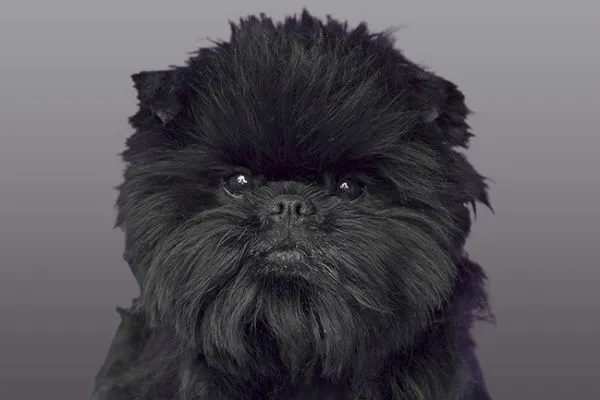 Affenpinscher
Affenpinscher
The Affenpinscher, whose name translates to “monkey-like terrier,” lives up to its moniker with its intelligent gaze and distinct appearance. This small breed, despite its diminutive size, possesses a fearless spirit. You can rest assured that an Affenpinscher on guard duty will alert you to any unexpected visitors, and you’ll find significantly less dog hair to worry about, even in your meals. Their wiry coat sheds minimally and is also known for having very little doggy odor. Maintaining their charmingly scruffy yet neat look requires only a twice-weekly brushing with a slicker brush and comb. This low-maintenance canine is also renowned for its humorous disposition.
If you’re intrigued by this breed, consider exploring Affenpinscher puppies from reputable sources.
Basenji
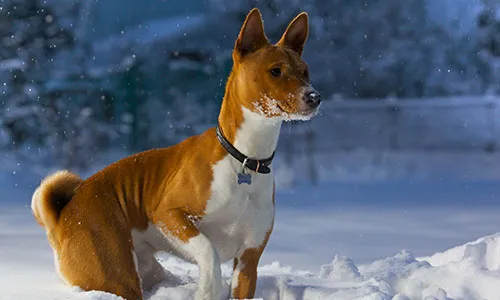 Basenji
Basenji
For dog lovers who appreciate the hound group but are less fond of their characteristic odor and shedding, the Basenji might be the perfect small dog breed. The Basenji sheds very minimally, and its short, fine coat requires little more than the occasional brushing. Basenjis are also famously quiet, making them an excellent choice for apartment living, provided they receive adequate daily exercise and playtime. Their unique vocalizations are more of a yodel or chortle than a bark, which can be quite endearing.
If you’re considering this unique breed, you might want to look into Basenji puppies.
Bichon Frise
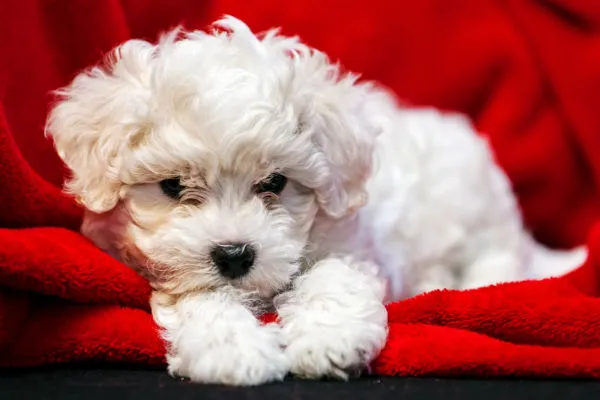 Bichon Frise
Bichon Frise
The Bichon Frise is truly a breed that epitomizes the “non-shedding small dog.” These playful and affectionate companions are an ideal dog breed for people with allergies. However, it’s important to note that “non-shedding” does not mean “maintenance-free.” The Bichon Frise’s hair grows continuously, necessitating frequent grooming, regular brushing, and occasional baths to maintain their characteristic “powder-puff” appearance. This commitment to grooming ensures their coat remains healthy and beautiful.
If you believe the Bichon Frise is the right fit for your family, you can explore available Bichon Frise puppies.
Bolognese
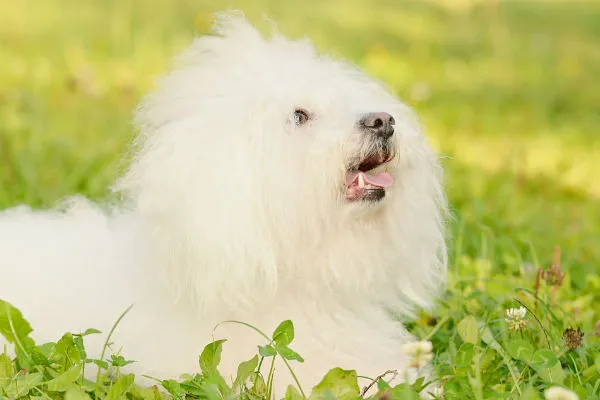 Bolognese
Bolognese
Similar to the Bichon Frise, the Bolognese sports a distinctive fluffy coat composed of hair rather than fur. The Bolognese does not shed, though dead hair needs to be brushed out regularly. Their coat demands daily grooming to keep these lovable lap dogs looking their absolute best. Their gentle and affectionate nature makes them wonderful companions.
For those interested in this charming breed, you can search for Bolognese puppies.
Brussels Griffon
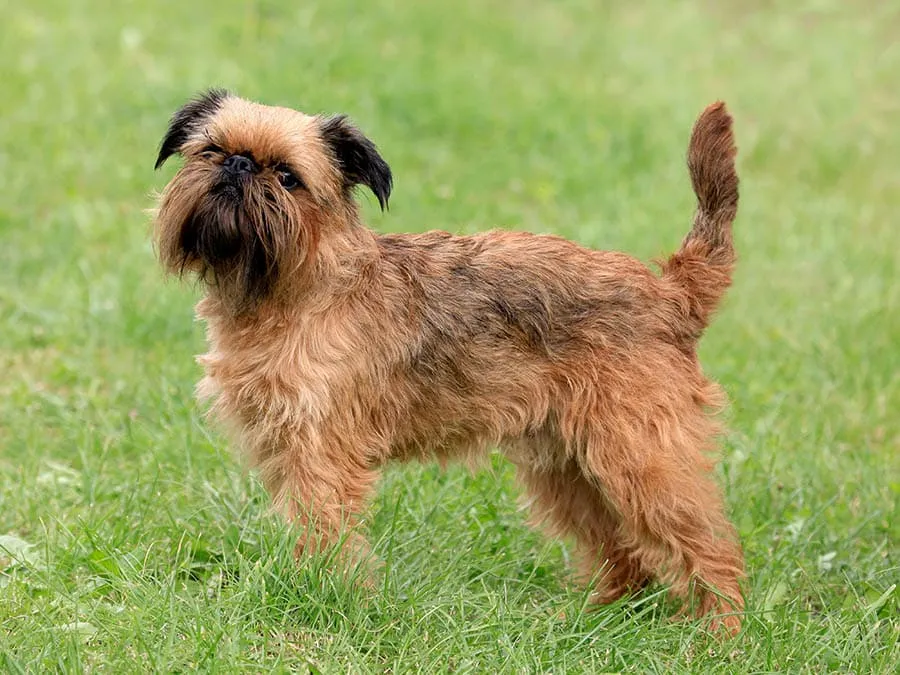 Brussels Griffon
Brussels Griffon
Don’t let their small stature fool you; the Brussels Griffon is not a breed that requires excessive pampering. Both the smooth-coated and rough-coated varieties of the Brussels Griffon thrive with regular grooming and are minimal shedders. Their compact size means that a daily walk and indoor play sessions are typically sufficient to meet their exercise needs. This loyal little dog flourishes in the company of families who are home frequently, as they bond very closely with their owners.
If you’re considering adding a Brussels Griffon to your home, you can find Brussels Griffon puppies through various channels.
Chinese Crested
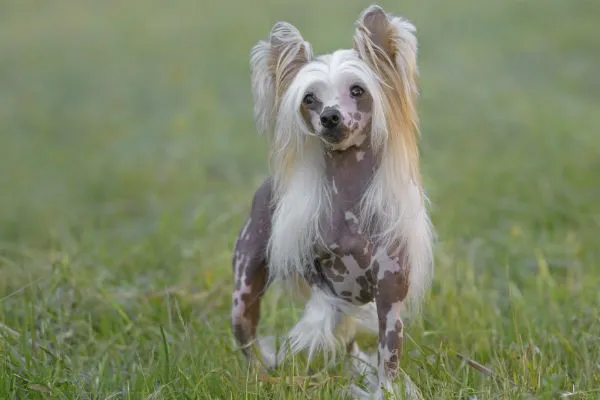 Chinese Crested
Chinese Crested
One effective strategy to completely avoid shedding is to opt for a small hairless dog breed. The Chinese Crested comes in two coat types: hairless and powderpuff. The hairless variety has hair only on its head, tail, and feet. The powderpuff Chinese Crested, on the other hand, is covered in a coat of fine hair that sheds very minimally. It’s crucial to remember that hairless dog breeds require extra care and attention for their skin. Without a full coat, they need protection from the sun and cold and are more susceptible to skin irritations.
If this unique breed appeals to you, consider looking for Chinese Crested puppies.
Coton de Tulear
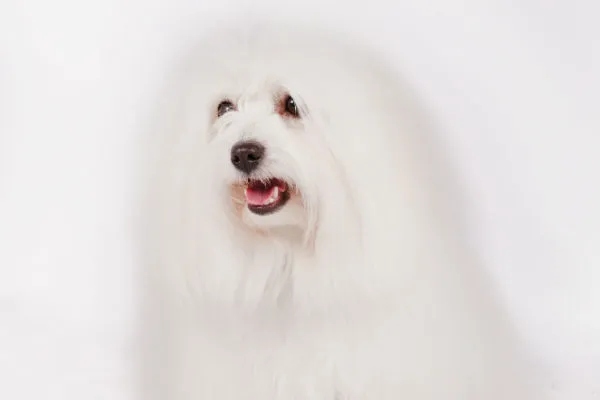 Coton de Tulear
Coton de Tulear
The Coton de Tulear boasts a distinctive, long, fluffy coat that is considered hypoallergenic, making it an excellent choice for allergy sufferers and those seeking a small dog that doesn’t shed. While Coton de Tulears do require daily grooming to maintain their beautiful coats, their lighthearted and gentle natures make the effort incredibly rewarding. Their playful and affectionate disposition makes them wonderful family pets.
If you’re drawn to the charm of the Coton de Tulear, you can explore Coton De Tulear puppies.
Havanese
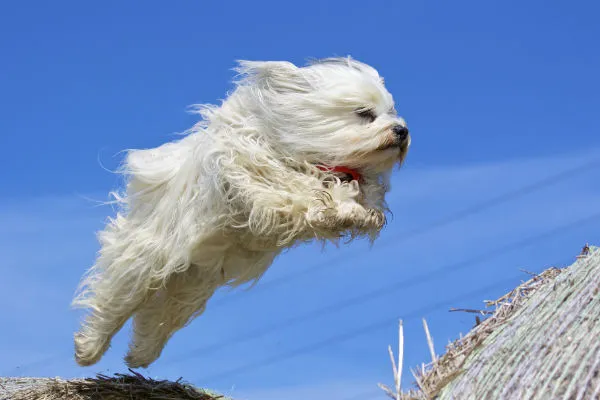 Havanese
Havanese
These native Cuban dogs offer their owners a delightful blend of spunky charm and a coat that doesn’t shed. This means less time spent lint-rolling your furniture and more time enjoying romping sessions with the playful Havanese. Their coat requires weekly brushing and regular baths to keep them clean and healthy, but this grooming routine is a small price to pay for their engaging personality and minimal shedding. They are known for their intelligence and adaptability.
If the Havanese sounds like the perfect fit, you can find Havanese puppies.
Maltese
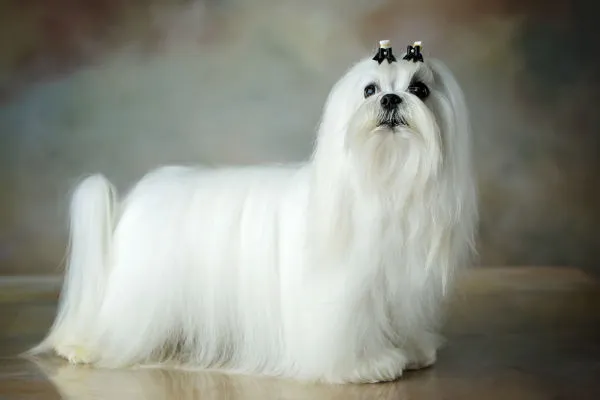 Maltese
Maltese
Maltese dogs have captivated humans for over three millennia. This ancient breed from Malta has remained remarkably consistent over the centuries, perhaps partly due to their long, white coats that shed very little, making them an ideal lap dog. Their elegant coats do require regular brushing to prevent mats from forming, and an occasional bath is necessary to remove any dirt and debris from their long, silky hair. Their devoted nature makes them excellent companions for individuals and families.
If you are interested in this classic breed, you can search for Maltese puppies.
Lhasa Apso
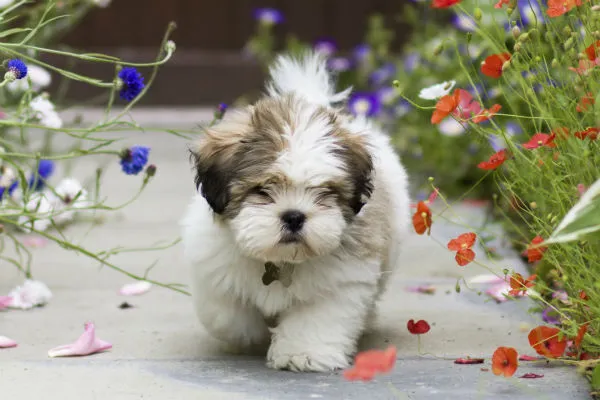 Lhasa Apso
Lhasa Apso
This small dog breed originating from Tibet makes for an excellent companion. Calm yet playful, the Lhasa Apso enjoys brisk walks and relaxing in their owner’s lap. Lhasa Apsos don’t shed, but their beautiful coats do require consistent maintenance. Many owners opt to keep their Lhasa Apsos clipped in a “puppy cut” to simplify grooming and brushing of their long hair. Their independent spirit and affectionate nature make them loyal pets.
If the Lhasa Apso appeals to you, consider looking into Lhasa Apso puppies.
Miniature Schnauzer
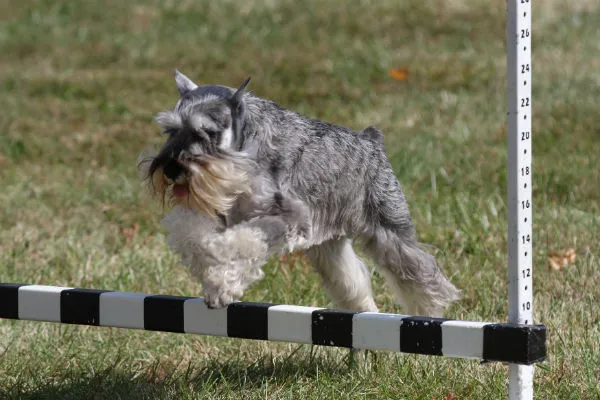 Miniature Schnauzer
Miniature Schnauzer
The Miniature Schnauzer is a smart, trainable, and cheerful little dog that bears a strong resemblance to its Standard Schnauzer cousin. This Terrier breed sheds very little, and their adaptability allows them to be comfortable in both city and country environments, as long as their beloved humans are nearby. To keep Miniature Schnauzers looking their best, incorporate weekly brushing and regular professional grooming into their routine. Their spirited personality and affectionate demeanor make them beloved family members.
If you’re considering this energetic breed, you can find Miniature Schnauzer puppies.
Poodle
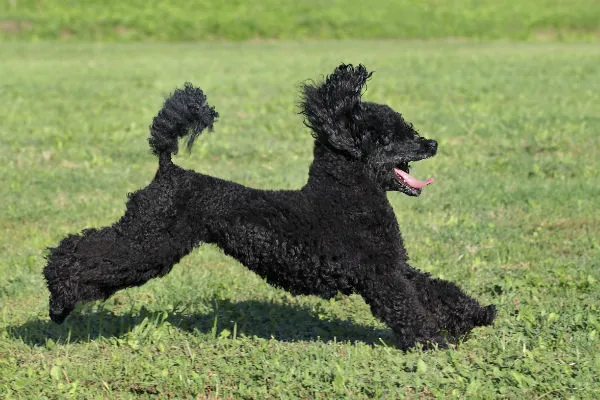 Poodle
Poodle
When discussing small dogs that don’t shed, Poodles are often the first breed that comes to mind, and for good reason. Poodles are renowned for being non-shedding and hypoallergenic. Miniature and Toy Poodles offer these desirable traits in petite, intelligent packages, differing from Standard Poodles only in size. All Poodles are highly intelligent, which makes them exceptionally easy to train, and they possess an active and proud demeanor. Their unique hair does require regular professional grooming to prevent matting and maintain their distinctive appearance.
If you are interested in this highly intelligent breed, you can explore Poodle puppies.
Scottish Terrier
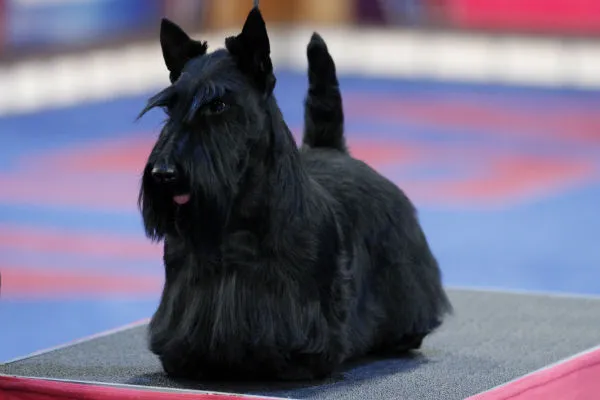 Scottish Terrier
Scottish Terrier
The Scottish Terrier, affectionately known as the Scottie, is a Terrier breed celebrated for its boldness, confidence, and substantial personality packed into a small frame. Their wiry, weather-resistant coat sheds very little. However, they do require regular brushing, grooming, and occasional hand-stripping to maintain coat health and the breed’s signature outline. Scotties are clever and independent dogs with strong prey drives, which means owners must exercise caution when introducing them to smaller animals.
For those considering this spirited breed, you can look for Scottish Terrier puppies.
Shih Tzu
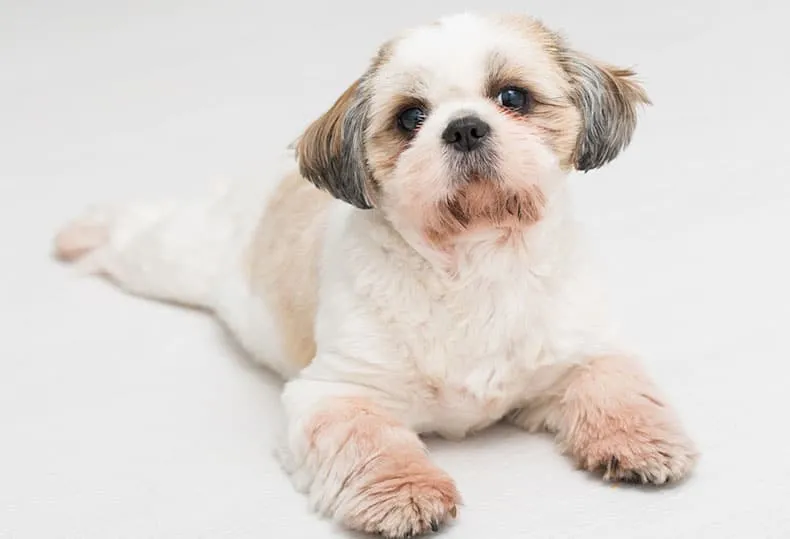 Shih Tzu
Shih Tzu
The Shih Tzu boasts a long and distinguished pedigree, having been the favored house pet of royalty during the Tang Dynasty. These “little lion dogs” come in a variety of colors and patterns. Their long, silky hair is very low-shedding and looks exceptionally regal when brushed out, befitting their royal ancestry. This Toy breed is sturdy and lively, often carrying themselves with an air of pride, characterized by their high-held heads and curling tails. Shih Tzus were originally bred as indoor companions, and their gentle, trusting nature makes them exceptional family pets.
If the Shih Tzu captures your interest, you can search for Shih Tzu puppies.
West Highland White Terrier
 West Highland White Terrier
West Highland White Terrier
The coarse, white coat of the West Highland White Terrier, affectionately called Westies by their fans, sheds very little. This sturdy little dog is intelligent, loyal, happy, and highly entertaining. They are curious dogs with moderate energy levels and an independent streak common among Terriers, which can sometimes make training a bit of a challenge. Their playful nature and affectionate disposition make them wonderful companions.
If you are considering this charming breed, you can explore West Highland White Terrier puppies.
Xoloitzcuintli
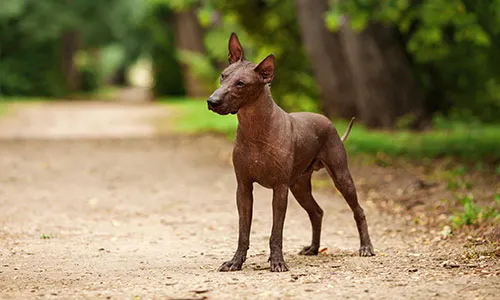 Xoloitzcuintli
Xoloitzcuintli
Also known as the Mexican Hairless, the Xoloitzcuintli is an ancient and rare breed of dog that can be found in either hairless or coated varieties. The hairless varieties typically have a small amount of hair on their heads, while the coated variety sports a very short, fine coat that sheds minimally. As with any hairless breed, the Xolo requires a bit of extra attention to its skin to protect it from the elements. Xolos make attentive watchdogs and affectionate companions. While they enjoy physical activities like walks and vigorous play, they are particularly known for their tranquil personality when at home.
If this unique breed piques your interest, you can find Xoloitzcuintli puppies.
Yorkshire Terrier
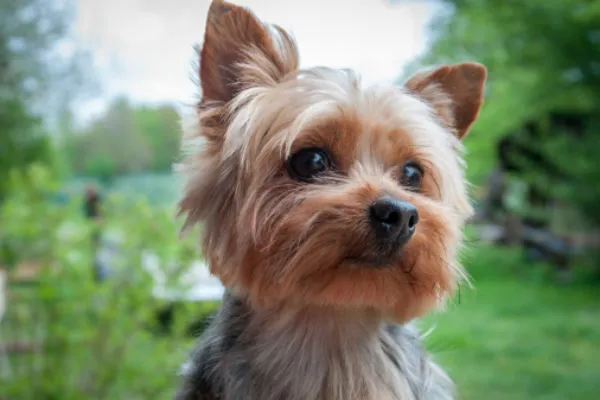 Yorkshire Terrier
Yorkshire Terrier
Sprightly, tomboyish, and affectionate, the Yorkshire Terrier, often called the Yorkie, is a Toy breed brimming with personality. These spunky lap dogs are consistently among the most popular dog breeds, and for good reason. Yorkshire Terriers do not shed, and their silky coats are beautiful when brushed daily, a task made easy by their small size. Don’t be fooled by their elegant appearance – Yorkies have working-class roots. These fearless terriers once hunted rats in English clothing mills, though today they are just as content to relax on their owner’s lap as they are to chase a phantom rodent.
If the charming Yorkie is the right fit for your family, you can look for Yorkshire Terrier puppies.
Other Small Dog Breeds That Don’t Shed
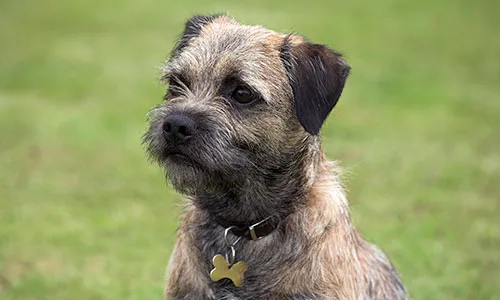 Border Terrier
Border Terrier
The Terrier group is a treasure trove of small dogs that exhibit little to no shedding. Wiry- and coarse-haired Terriers generally shed less than other breeds, making them excellent choices for individuals who prefer to avoid excessive fur around their homes. Here are some additional non-shedding or low-shedding Terrier breeds that might capture your interest:
There are numerous small dog breeds that don’t shed, but it’s important to remember that even a non-shedding dog requires dedicated care. Take the time to thoroughly research non-shedding dog breeds to find the canine companion that best aligns with your lifestyle and personality. To ensure your pet’s well-being and avoid potential health issues, always purchase a dog from a reliable breeder, feed your dog a high-quality diet, and schedule regular veterinary checkups.
